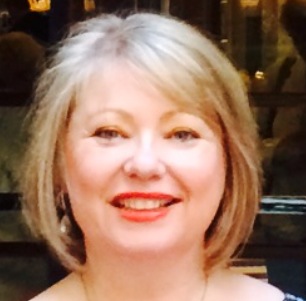 Child sexual exploitation is a highly sensitive issue and often a taboo subject. Many professionals find it difficult to talk about the subject and others feel they just don’t have the expertise to tackle such an complex issue. Child sexual exploitation can happen in any community and all professionals have a role to play in identifying and protecting children and young people. Child sexual exploitation, mostly involves girls and young women, but it must be remembered that it can involve boys and young men as well. We know it can take many forms, from the seemingly ‘consensual’ relationship where sex is exchanged for attention, accommodation, drugs, alcohol, money or gifts, to organised crime and trafficking. It involves varying degrees of coercion, intimidation or enticement, including unwanted peer pressure, sexual bullying (including cyber bullying) and grooming for sexual activity. In all cases, those exploiting the child/young person have power over them by virtue of their age, gender, intellect, physical strength and/or economic resources. We know violence, coercion and intimidation are often common within exploitative relationships, it is therefore not surprising that young people who are at risk or victims of CSE may find it difficult to trust adults to disclose or to seek help.
Child sexual exploitation is a highly sensitive issue and often a taboo subject. Many professionals find it difficult to talk about the subject and others feel they just don’t have the expertise to tackle such an complex issue. Child sexual exploitation can happen in any community and all professionals have a role to play in identifying and protecting children and young people. Child sexual exploitation, mostly involves girls and young women, but it must be remembered that it can involve boys and young men as well. We know it can take many forms, from the seemingly ‘consensual’ relationship where sex is exchanged for attention, accommodation, drugs, alcohol, money or gifts, to organised crime and trafficking. It involves varying degrees of coercion, intimidation or enticement, including unwanted peer pressure, sexual bullying (including cyber bullying) and grooming for sexual activity. In all cases, those exploiting the child/young person have power over them by virtue of their age, gender, intellect, physical strength and/or economic resources. We know violence, coercion and intimidation are often common within exploitative relationships, it is therefore not surprising that young people who are at risk or victims of CSE may find it difficult to trust adults to disclose or to seek help.
This week the Prime Minister outlined plans to tackle CSE. Mr Cameron highlighted the importance of CSE being on everyone’s agenda. Today we publish guidance for school nurses, ‘Helping School Nurses to Tackle Child Sexual Exploitation,' as part of the whole package of steps to prevent CSE.
School nurses as leaders of public health for school-aged children are well placed to develop trusting relationships with young people who make be at risk or a victim of CSE. We heard from school nurses and their teams, that they wanted to support to become more aware of the risk factors associated with CSE and clarity on how to provide support for children and young people who are at risk or victims. Over the last 6 months Betsy Allen, Professional lead for school nursing in Devon, worked closely with the Department of Health, the Home Office and partners including Public Health England to support the development of guidance for school nurses, her own passion and that of the small task group provided the impetus to shape the guidance. The guidance is designed to clarify the role of the school nursing service on child sexual exploitation. It aims to consolidate best practice by helping practitioners to recognise child sexual exploitation in their interactions with school children, understand its effects on the child and taking action. The actions summarise their usual role in terms of a core offer from the school nursing service.
We are delighted to see the publication of the pathway, a huge thanks goes to the task group has worked incredibly hard and supported the development process. I would also like to express particular gratitude to Betsy Allen and Michael Fanner – both truly committed professionals, passionate about improving the health and wellbeing of children and young people.
'School nurses offer health promotion, early assessment and on-going support to families, children and young people. They are therefore ideally placed to inform young people of the risks of child sexual exploitation, to pick up its early signs, to alert specialist safeguarding services and, within a multiagency context, to give on-going support to children who are victims, and sometimes perpetrators of child sexual abuse.' - Betsty Allen, Professional Lead for School Nursing, Integrated Children's Services, Devon
‘It has been fantastic to be part of developing national policy to improve the health and well being of children and young people who are affected by sexual exploitation. CSE can have a devastating impact on a child’s life and early intervention is key. As both a doctoral researcher in CSE and a specialist community public health nurse, I felt I had a unique contribution to make bridging the gap between understanding issues in practice as well as utilising the existing research-base I had gathered as part of my doctoral study.
Within the last few years, CSE has dramatically changed in terms of its conceptualisation and recognition. As part of the national response we have developed a sophisticated pathway that allows front-line practitioners working in school public health to understand, identify, intervene early and work with victims of CSE, using the best available evidence-base in combination with many (combined) years of safeguarding experience from practitioners.’ - Michael Fanner, PhD Student - Faculty of Education and Health, University of Greenwich
Wendy Nicholson is the Professional Lead for School and Community Nursing at the Department of Health
